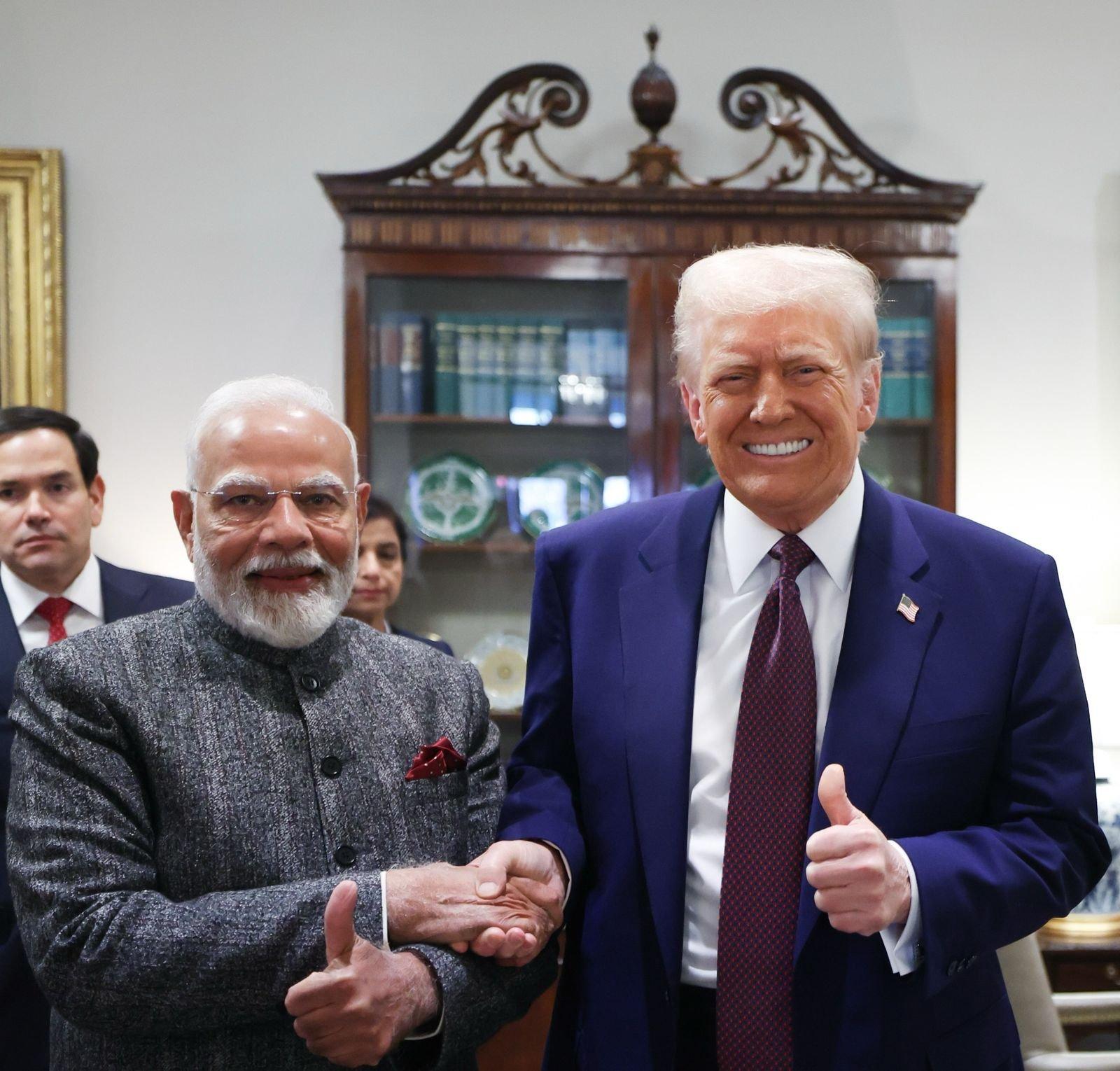
Donald Trump, the current U.S. president, has built his political reputation on aggressive negotiation tactics, often using threats of tariffs and economic consequences to pressure other countries into compliance. Recently, his confrontations with major economies like the European Union, Canada, Mexico, China, and even smaller nations like Colombia have resulted in strong pushback. However, when it comes to India, the response seems different.
While nations like China have taken a firm stand—declaring they are ready to "fight to the end" in any economic war—India appears to be more accommodating. When Trump suggested that India should buy F-35 fighter jets, India quickly agreed. And now, with Trump's threat of a 110% auto tariff looming, the Indian government is reportedly considering lowering its auto tariffs. This raises a critical question: Is India afraid of Trump’s economic pressure?
How the World Has Responded to Trump’s Trade Threats
European Union (EU) – Swift Retaliation
When Trump threatened the European Union with tariffs, the EU did not hesitate to respond. It imposed retaliatory tariffs on American products, showing that it would not be bullied into submission. The EU’s firm stance forced the Trump administration into further negotiations rather than unilateral action.
Mexico & Canada – Standing Their Ground
Mexico and Canada faced similar threats from Trump, particularly regarding trade agreements like the USMCA (United States-Mexico-Canada Agreement). However, both countries negotiated hard and managed to protect their interests rather than immediately complying with Trump’s demands.
Colombia – Even Small Nations Pushed Back
Despite being a smaller economy, Colombia did not back down when Trump exerted pressure. The country responded with its own measures, proving that even smaller nations were ready to stand up to the U.S.
China – Ready for a Trade War
China, as expected, took an aggressive stance. When Trump threatened with tariffs, China made it clear that it was fully prepared for an economic war. The Chinese government responded with counter-tariffs, restricting American businesses and diversifying trade partnerships to reduce dependency on the U.S.
India’s Response – A Different Approach?
F-35 Fighter Jets – A Quick Agreement
When Trump suggested that India should buy F-35 fighter jets, the Indian government quickly agreed. While the decision to purchase advanced jets could be seen as a strategic move, the speed of India’s agreement raises questions about whether it was a well-calculated decision or a response to U.S. pressure.
Auto Tariff Threat – India’s Possible Concession
Trump's latest threat of a 110% auto tariff has reportedly led India to consider cutting its own auto tariffs. Unlike other countries that retaliated or negotiated toughly, India appears to be taking a softer approach.
Harley-Davidson Tariff Cut – Another Concession?
One of Trump's long-standing demands was for India to lower import tariffs on American motorcycles, specifically Harley-Davidson. After continuous pressure from Trump, India eventually reduced these tariffs. This move, while seemingly minor, was symbolic—it showed how India was willing to make trade concessions under U.S. pressure while other nations took a firmer stance.
Is India Afraid of Trump?
India’s pattern of responding positively to Trump’s demands, rather than pushing back like other nations, suggests a different strategy. Instead of confrontation, India might be looking at long-term benefits from closer U.S. relations. However, critics argue that this approach might make India appear weaker on the global stage.
India is a growing economic power and a major global player. If it continues to concede to Trump's demands without negotiation, it could set a precedent where future U.S. administrations expect similar compliance. The key question remains—will India maintain its independent stance in global politics, or will it continue making adjustments to align with Trump’s policies?
While other global players have responded to Trump’s threats with resistance, India’s approach seems more cooperative. Whether this is a smart diplomatic strategy or a sign of fear is up for debate. However, in the fast-changing world of international politics, India must carefully balance its relationship with the U.S. while ensuring that its own national interests remain protected.
Disclaimer
This article is based on available reports and political developments. The views expressed are for informational purposes only and should not be considered as an endorsement of any political stance. Readers are encouraged to analyze multiple perspectives before forming their own opinions.




